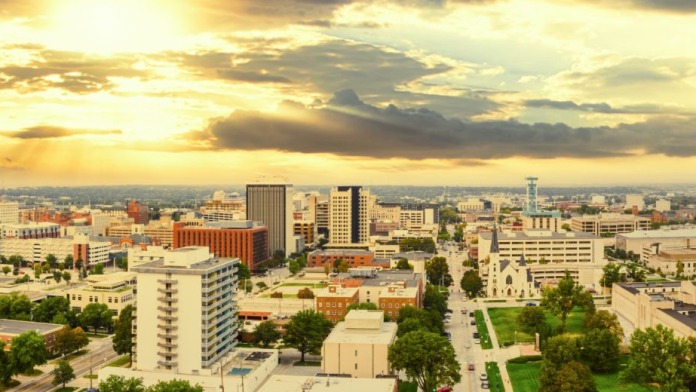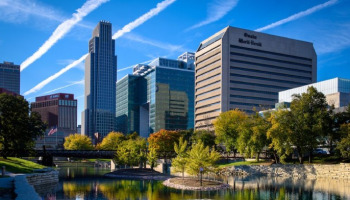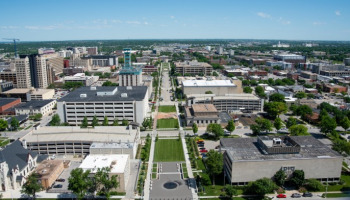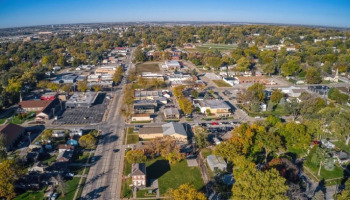Expert Insights
The Cornhusker State ranks 49th for drug overdose deaths. But let’s not assume this means Nebraska doesn’t face drug problems. The truth is, meth use continues to spread, and the amount of meth seized by officials has spiked dramatically in recent years. And, while Nebraska cities aren’t big drug destinations, Interstate 80 offers a known drug transportation corridor that stretches across the plains. Inevitably, some of the drugs making their way across Nebraska (which includes meth) will end up in the hands of locals. If we want maintain the low overdose rate and prevent additional problems, officials must make this corridor less appealing to traffickers.
~ Kerry Nenn
How Much Does Drug Rehab Cost in Nebraska?
Nebraska is ranked 42nd nationwide in terms of addiction treatment affordability, with an average cost of drug and alcohol rehab of $58,777 (without insurance).
- Medical detox is the most expensive, with an average cost of $144,907
- Long-term inpatient drug rehab in Nebraska costs an average of $51,867
- Outpatient addiction treatment in Nebraska costs an average of $8,618
- Outpatient methadone treatment is the most affordable, with an average cost of $7,657
Factors Impacting Treatment Cost:
- If you select an inpatient or outpatient program
- The types of special amenities offered by the facility
- Your length of stay for treatment
- If the chosen rehab is in-network with your insurance plan
- Location of the facility or detox center
The cost of your recovery program will depend on a number of factors. The total out-of-pocket costs depend on a number of variables, including the kind of program you choose and the type of insurance you have.
You can also find free, low-cost, or sliding-scale payment programs in Nebraska. Your income level, assets, insurance status, and residency will be used to determine eligibility. By offering affordable treatment, payment options, and plans, access to recovery is increased across the state.
Some facilities provide individual scholarships that can help you pay for treatment. Additionally, state-run programs will generally treat anyone in need of addiction treatment, regardless of their ability to pay (though waiting lists for admission can be very long). Remember to ask your chosen facility about their total out-of-pocket costs and billing policies.
Paying for Addiction Treatment in Nebraska
As of 2024, there were over 120 drug rehab facilities across the state of Nebraska. These facilities accept several payment methods. Of those treatment facilities, the following numbers reflect how many accept their respective payment methods:
Private Pay and Health Insurance
If you don’t have insurance, most treatment centers will let you pay out of pocket. Sometimes they have special rates or income based sliding scales for people who are paying cash.
If you have health insurance, you may be able to use it to pay for alcohol and drug rehab.
This is the most common way people use to fund their treatment. You may have health insurance through an employer or you may get it through Marketplace Nebraska, the official state health insurance marketplace. If you get it through the marketplace, you may be able to get subsidies depending on your income. Common health insurance benefits providers in Nebraska include:
- Cigna
- Medica
- Aetna
- UnitedHealth
- Blue Cross Blue Shield of Nebraska
- MHNet
- Ambetter
Medicaid
Medicaid is a state run health insurance program for people with low income. If you have Medicaid in Nebraska, your addiction treatment will be covered. In 2020, Nebraska expanded Medicaid to allow it to cover more people. As of 2021, you no longer have to meet a work requirement to qualify for Medicaid in Nebraska. You can apply for Medicaid through the Nebraska iServe portal. Once you have gone through that process and the government has deemed you Medicaid eligible, you can sign up for a plan through the Nebraska Heritage Health Program. This program works like an insurance marketplace that is just for Nebraska’s managed Medicaid plans.
Medicare
Medicare is the federally run health insurance plan for people who are over 65 or who are disabled. If you or your loved one have Medicare, it covers services from addiction treatment centers. To get Medicare, you can go through the federal government or you get a Medicare Advantage plan. If you’re considering a Medicare Advantage plan and think you might need substance use treatment at some point, you’ll want to make sure there are addiction providers in the network of the plan you’re considering. You can usually do that by searching the plan’s network online.
Military Health Benefits
Most military health benefits pay for addiction treatment. The difference between the plans is in how you access treatment. People who get their health care through the VA can also get their addiction treatment there. Every VA health system has addiction treatment services. To access those services, you can talk to your VA primary care provider or you search for VA substance treatment near you.
Some people receive their military health care benefits through TRICARE. This coverage functions like regular health insurance. They have a network of health care providers, which includes substance use treatment. In Nebraska, you’re part of the TRICARE West network.
Alternatively, you may be getting your military benefits through the Civilian Health and Medical Program of the Department of Veteran Affairs, also known as CHAMPVA. If you have this type of health coverage, you also have substance use coverage. Sometimes people with CHAMPVA can get healthcare at their local VA. If that’s how you’re getting your healthcare, then you can get your substance use treatment the same way. Sometimes people with CHAMPVA use the TRICARE network for their health services. If you want to use the TRICARE network, you will need to check with the provider that they also accept CHAMPVA.
Tribal Funding for Substance Use Disorder
Your local Indian Health Service clinic can be a good starting point for finding substance use treatment. They will usually be able to help you with outpatient counseling and medication management. Treatment at an IHS clinic is free for you if you’re a member of a federally recognized tribe.
If you need residential treatment for substance abuse, the Nebraska Urban Indian Health Coalition operates a ten bed addiction treatment center in Lincoln. They offer additional substance use treatment services that you might not find at your local IHS clinic. Visit their website to learn more.
If you get health insurance as an Indigenous American, it won’t stop you from being able to use IHS services and will increase your access to other service providers.
Other Low-Cost Options
In Nebraska, you may be able to find addiction treatment resources at the regional level that are affordable. The Nebraska Division of Behavioral Health oversees a network of resources in six different geographical regions. You can find their search portal here.
Some faith based organizations help people to stop using substances through intensive bible study and teaching people how to live a faith based lifestyle. These programs are sometimes offered free of charge.
If you have opioid use disorder, treatment with medications may stabilize you enough that you can get your treatment as an outpatient without having to undergo expensive residential treatment. Your primary care provider may be able to provide medication treatment, or they may be able to refer you to someone who can assess if this option is right for you.
Free Addiction Treatment Resources in Nebraska
In Nebraska, alcohol and drug treatment can be expensive. If you don’t have insurance, or if you do but your deductible is too high, treatment can feel like it’s out of reach. But there are ways to get help, even if you have few resources.
Since addiction frequently leads to poor finances, many addiction treatment centers in Nebraska have financial aid resources available for their clients. Some treatment centers receive state and federal grant money that allows them to treat everyone even if they can’t cover the cost. Below, you’ll find resources that can help you get the treatment that you or your loved one need.
Nebraska Health Centers
Your local community health center may be a good starting point for finding addiction treatment. Many community health centers have started using a treatment model that embeds substance use treatment into their clinics. This means that in some cases you can even get help from your primary care provider. In Nebraska, there are several community health centers that receive federal funding, allowing them to serve people with few financial resources. To find one near you visit their search page and look on the map for the closest one.
CenterPointe
CenterPointe is an addiction treatment center with locations in Lincoln and Omaha. They offer a full range of services from drug rehab to outpatient counseling, and even primary care. They take insurance, including Medicaid. They have an income based sliding scale if you don’t have insurance. They won’t deny you services if you can’t afford to pay.
Human Services Inc.
Human Services Inc. provides substance abuse treatment to people living in the western panhandle region of Nebraska. Their offices are in Alliance. You can get drug and alcohol rehab through them and then step down to outpatient treatment. They’re accredited with CARF, licensed by the state and take Medicaid.
South Central Behavioral Services
South Central Behavioral Services has outpatient locations in Hastings and Kearney. They have walk-in services at certain hours of the day that allow you to be seen without an appointment. They can assess your level of need and refer you to the level of care that meets your needs. They accept insurance, including Medicaid, but will see you without regard for your ability to pay for services.
Behavioral Health Specialists
Behavioral Health Specialists offer a range of substance abuse treatment services. They have rehab centers in Norfolk and Columbus. They take most insurance, including Medicaid, but if you don’t have insurance they will do a sliding scale based on income. They won’t turn down anyone based on their inability to pay.
Great Plains Health
Great Plains Health is a hospital system with a behavioral health department. They have both inpatient and outpatient addiction treatment. Their inpatient unit accepts people who are fifteen or older. They take most health insurance plans, Medicare and Medicaid. If you don’t have health insurance, they can set up an income based sliding scale. They also have financial assistance available. They’re located in North Platte.
Nebraska Alcohol and Drug Use Statistics
Drug and alcohol use in Nebraska are below the national averages but not uncommon.
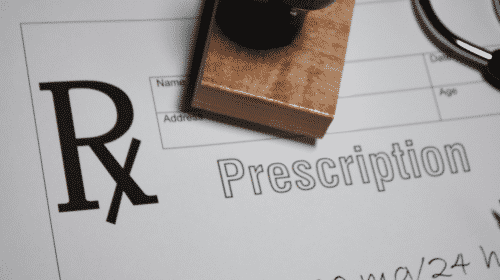
In 2021, 7.7% of adults in Nebraska used drugs for non-medical purposes vs. the national average of 12%1

Illicit drugs and cannabis were the most common types of drugs abused
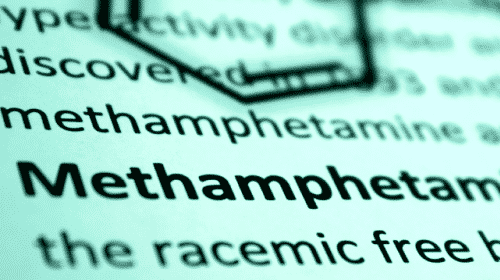
Treatment for methamphetamine rose more than 200% in a 10-year period from 2008 to 2018.

People making under $25,000 a year were most likely to abuse drugs for non-medical reasons
Drug Laws in Nebraska
Nebraska DUI Law
In Nebraska, the blood alcohol level over which you’re considered legally intoxicated is 0.08%, unless you’re a commercial driver, then the limit is 0.04%. You can still be arrested for DUI with a blood alcohol level that is less than that.
The police officer need only judge that you appear intoxicated based on the way you’re driving or how you look. If you refuse chemical testing for alcohol or other drugs, the police can charge you with criminal refusal. The penalty is a 180 day driver’s license suspension that will be added to your DUI penalty.
Nebraska Marijuana Law
In Nebraska, the law doesn’t allow you to use marijuana either legally or medicinally. If you’re found to have less than an ounce on you and it’s your first offense, you’ll get a citation and up to a $300 fine. If it isn’t your first offense then you may be criminally charged and have to do time in jail. At the time of this writing, Nebraska is trying to put medicinal marijuana on the ballot for the 2024 election.
Drug Court in Nebraska
If you’re convicted of a drug offense in Nebraska, you can be diverted from criminal court into drug or DUI court. This option is available for non-violent offenders who have substance use disorder. People who go this route can expect to participate in treatment, community service, urine testing and frequent contact with the court over several months.
Addiction Treatment Access for Nebraskans
The Nebraska legislature passed a law in 2023 allowing the state to create Certified Community Behavioral Health Clinics (CCBHC) throughout Nebraska. This law is still in the process of implementation. Once it’s enacted, anyone who wants drug treatment in Nebraska will be able to get it, regardless of their ability to pay, if they go to a CCBHC.
Resources
- 2020 SUDORS Summary. (n.d.). Drug Overdose Deaths in Nebraska.
- FindTreatment.gov. (n.d.). FindTreatment.gov.
- America’s Health Rankings. (2021). Non-Medical Drug Use – Past Year In Nebraska.
- America’s Health Rankings. (2020). Excessive Drinking In Nebraska.
- Nebraska DHHS. (2022). Medicaid Behavioral Health Service Definitions.
- Medicare.gov. (2022). Inpatient hospital care.
- Medicare.gov. (2022). Mental health care (outpatient).
- NAMI. (2022). Acamprosate (Campral).
- Nebraska Judicial Branch. (2022). Nebraska Problem Solving Courts.
- Nebraska DHHS. (2022). Naloxone Distribution Program
- Nebraska Medical Association. (2017). Nebraska joins 37 other states with passage of Good Samaritan drug overdose immunity law.

